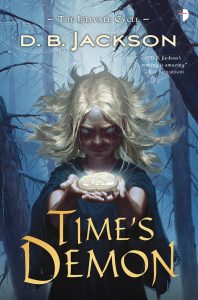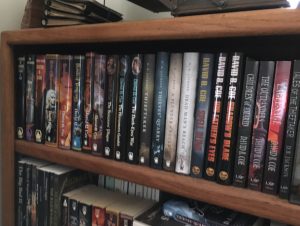Welcome to the first of my 2020 Writing Tip Wednesdays (name still very much negotiable…). Every Wednesday, I intend to post a tip for writers about some element of the craft or business of writing. I don’t really have in mind any long-term structure for this feature – at least to begin with. I’ll probably be ranging somewhat randomly from one topic to the next. And I will be soliciting your input on what you’d like to hear about in these Wednesday posts.
For this week, though, I am thinking about short fiction, mostly because I am reading stories for the Zombies Need Brains anthology, Galactic Stew, which I am co-editing with Joshua Palmatier. In particular, I am thinking about the way in which stories ought to be submitted to editors for consideration, in terms of both appearance and content. Bear with me if you’ve heard some of this before.
Let me begin with this: Joshua and I received 409 submissions for this anthology. Our plan is to accept six stories (the other eight in the anthology are to be written by our anchor authors). Again, six stories will be selected from 409. Think about that for a moment. It is harder to get into our anthology than it is for a high school senior to get into Harvard. And so you want to give your story the very best chance of being selected, and that means a couple of things. Yes, naturally you want to write the best story you can. But you also don’t want to disadvantage your entry by failing to follow our submission guidelines or by presenting your work in a manner that is less than professional. So with that in mind, a few tips:
1) Follow the submission guidelines. If you have been to a convention I’m attending, you’ve probably heard me say this before, because it’s that important. Every anthology, every magazine (paper or online), every publishing house, every representational agency – EVERY market – has guidelines. Your job as writer is find them and follow them to the letter. Do not assume that the guidelines for one market apply to all. Chances are they don’t. ALWAYS check the guidelines. Always follow them. If by some chance you find the one market in the world that doesn’t have guidelines, then I recommend that at the very least you follow standard manuscript format: one inch margins all around: 12 point font, preferably Times New Roman; double-spacing; indenting at the beginning of each paragraph; headers containing page number, your last name, and the title of the story; .doc or .docx format (NOT .pdf). These are basics; they should be second nature. This is how professionals present their work.
2) Word count matters. In part this means that if we say “no longer than 7,500 words,” you probably shouldn’t send us a 9,000 word story, even if it is the greatest piece of short fiction since “The Lottery.” But it also means think about how long your story should be at minimum. Many sites will help with this, offering a word range, or, as with the Zombies Need Brains site, specifying an average length of story (in this case, 6,000). Still, even without such information, the upper word count limit should give some indication of desired length. If a market says they want stories no longer than, for instance, 7,500 words, that is likely an indication that they are not looking for flash fiction. Often publishers are trying to produce something (a book or magazine issue) of a certain length, and so they might well have in mind a page count, a word count, an approximate size for the project. For this reason, unless markets specifically ask for flash fiction, or very brief pieces of short fiction, a story that is only 500 or 1000 words long, probably is not going to make the cut.
3) Theme matters. Sometimes. Not all anthologies are themed. Sometimes editors are simply looking for the best stories they can find. At other times (as with the Zombies Need Brains anthologies) theme is everything. For anthologies like these, you want your stories to embrace the stated theme fully. It is usually not enough simply to have a passing mention of, say, food (the theme for Galactic Stew); it needs to be the focus of the story. To give a theme-appropriate analogy, it’s like on a cooking show, when the host tells you it’s not enough simply to use your basket ingredients. Rather you need to make those ingredients the star of whatever dish you’re making. In the same way, the theme should be central to your story.
4) When working with a theme, your first story idea might not be your best idea. This bit of advice I borrow from my co-editor, Joshua Palmatier, who offered it during a panel we shared at RoberCon in Binghamton back in September. This tidbit works on a number of levels: To begin, quite often, the first idea you come up with as you grapple with a theme is going to be the most obvious idea, not only to you, but to everyone who intends to submit. So, again using the food anthology as an example, if you write about, say, poisoning (which is actually an approach we urged people to avoid, but stick with me for the purposes of the example), it’s possible – likely even – that your story will be competing against dozens of poisoning stories. Yes, yours might be the best of them, but chances are we’re only going to take one, so you’re potentially putting yourself at a disadvantage. But also, don’t settle for the first idea works in a deeper way. Sometimes the most obvious idea is also the least interesting. The best stories we’ve seen have been those that surprise us, despite the fact that we’ve read literally hundreds of offerings. The more you think, the more you delve into the possibilities presented by the theme, the greater the chance that you’re going to discover something truly creative and unique. And that, after all, is your goal.
5) And finally, don’t be too hard on yourself if your story isn’t accepted. Did I mention that we received 409 submissions? These days, with so many people hoping to publish and so few markets available, editors and agents everywhere are inundated with stories (or manuscripts, or queries). It’s a tough market, and rejection, while painful, is not the same as judgment. A rejection does not mean your story sucks. It means that for this market, at this moment, the story is not what the editors or publishers or agents are looking for. And that’s ALL it means. The story might well be perfect for the next market to which you submit. Keep trying. If, after a while, the story still hasn’t sold, try another story, and maybe share this one with Beta readers who can offer constructive feedback. But do not freak out, and do not lose hope or get down on yourself. As I have said before, rejection is not the final word; it is simply a step in a long-term negotiation.
Best of luck to all of you. Keep writing!












 When we talk about craft, we usually focus on elements of initial creation – world building, character building and development, plotting, structuring and pacing a story or novel, and all the pitfalls we encounter when writing our stories. And certainly those are topics worthy of vigorous exploration.
When we talk about craft, we usually focus on elements of initial creation – world building, character building and development, plotting, structuring and pacing a story or novel, and all the pitfalls we encounter when writing our stories. And certainly those are topics worthy of vigorous exploration.

 This is an epic fantasy/time travel story, and I have a post up at the blog of my friend
This is an epic fantasy/time travel story, and I have a post up at the blog of my friend  Last night, for reasons surpassing understanding, I started reading through one of my old books. I know. What was I thinking, right?
Last night, for reasons surpassing understanding, I started reading through one of my old books. I know. What was I thinking, right? of motivation, tools (perhaps cudgels) I use to make myself a better artist.
of motivation, tools (perhaps cudgels) I use to make myself a better artist.